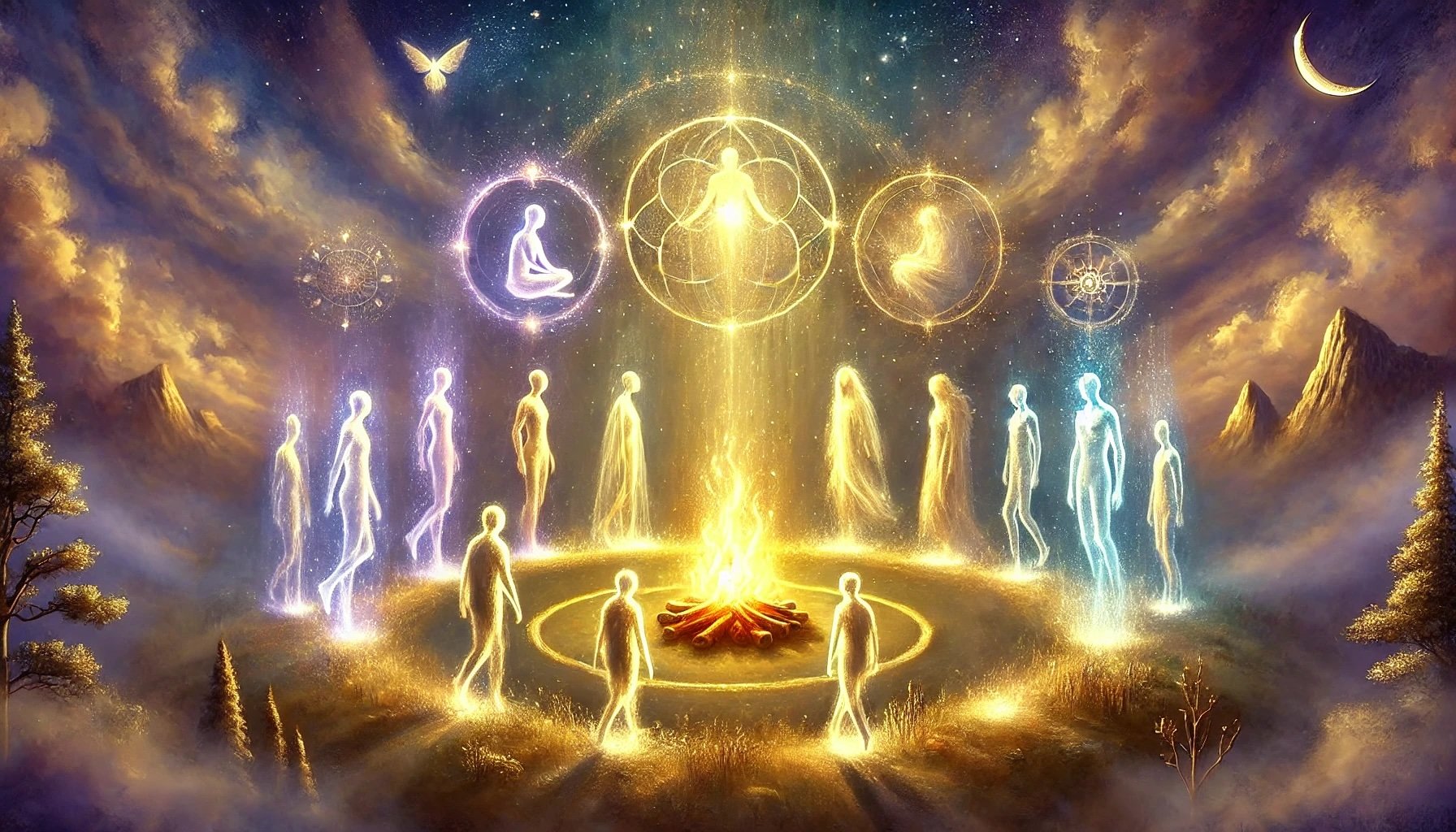Karma Wishes to Be Heard
Somewhere inside every moment that repeats is a voice whispering, "Do you hear me now?"
Most people think of karma as a force of cosmic consequence, balancing ledgers or delivering lessons. But karma is not punishment. It is not fate. It is simply a part of you that wishes to be heard.
When a part of us is shunned, we believe we have cast it out. But there is nowhere outside of the mind for form to exist. What we reject does not vanish. It remains—ignored, denied, hidden—but still alive. Still speaking.
The mind forms a group identity—a collection of accepted parts that claim the title of "I". This identity governs the body, shapes behavior, and filters perception. But around the edges of this group mind live the shunned—the parts of us we deem unworthy, unsafe, shameful, wrong. They are not dead. They are not gone. They are simply unheard.
And they wish to be heard.
Some of these shunned parts even shun each other. A part of you that holds deep sorrow may fear and suppress a part that holds rage. One fragment may silence another, creating layers of inner repression. These internal dynamics complicate the healing process, as even among the exiled, there can be struggle and shame.
Sometimes, shunned parts do not act alone. They gather, forming alliances of shared pain or purpose. Together, they amplify their message, orchestrating patterns in our lives that feel overwhelming or inescapable. What we experience as a complex trauma response may in fact be a choir of unheard voices, longing not for vengeance or domination, but for reunion.
All of them ultimately long to be welcomed back.
A shunned part begins gently. It sends messages:
As thoughts—intrusive, persistent, looping. Echoes in the mind.
As emotions—coloring mood, shifting energy, and creating a felt sense of discomfort in the body.
As physical sensations—pain, tension, injury. The body speaks when the psyche cannot.
If these messages go unanswered, the part gathers energy. It begins to exert a pull—a gravitational force upon the psyche. It tempts us to act out the karmic movement. This is not evil or broken. It is a cry for integration.
Eventually, when the pressure becomes too great or the system becomes destabilized—in other words, we become triggered—the shunned part surges forward. The group mind shatters, and the part takes over. We say or do things we later regret. We feel possessed by a force we cannot explain. And in a sense, we are.
Imagine a woman who has long hidden her anger. Her family taught her that expressing it meant danger or rejection. That part of her—the fierce protector—was shunned. For years, her mind quietly whispered to her "Do the right thing. Be a good girl." It whispered as tension, as fatigue, as restlessness, as discomfort in her body whenever her mind strayed to thoughts on the topic, as a feeling of hurt and shame whenever she was unable to express herself. Then one day, when a loved one crosses a boundary, the dam breaks. Her mind momentarily shatters, and when it reforms, it is her unheard part who now wears the face of “I”. She erupts. The anger speaks—not because she is cruel, but because that part has finally forced its way into the light.
The part does not want control. It wants to be seen.
Every shunned part offers a choice:
Move with it unconsciously, letting the karma act through us.
Reject it again, pushing it further from awareness.
Or heal it—by listening, witnessing, and integrating it back into the whole.
Healing is rarely easy. The pull of karma distorts perception. When a part is shunned for long enough, we often confuse it for our true self—or reject it so violently we cannot bear to look. The path of healing lies in recognition: This is all me. And I am ready to heal all of me.
To heal is to bring compassion. Not as sentiment, but as sacred technology. Compassion is the bridge across separation. It allows the shunned part to soften, to trust, to return. In the presence of compassion, all inner exiles begin to remember their belonging.
This is true not only of the personal, but the collective. The karma of a people, a nation, a lineage—these too cry out to be heard. They manifest as movements, as social unrest, as repeated cycles of harm. The same pattern applies. What is shunned seeks return. What is exiled returns through force, unless it is welcomed in grace.
Karma is not the past punishing you. It is the present inviting you. Every act of listening is a healing. Every moment of presence is a reunion.
Let the unheard parts speak. Let them tell their story. Let them come home.
A Blessing for the Return
To every part of me that was silenced,
to every voice exiled into the quiet corners of my mind,
to the ones who held the pain, the anger, the shame, the grief,
may you be heard now.
May the group mind that is me open like a circle by the fire, and may each part find a seat, a story, a place to belong.
You are not too late. You are not too much. You are not broken.
You are returning.
And in your return, the whole becomes holy again.
